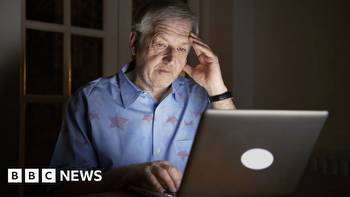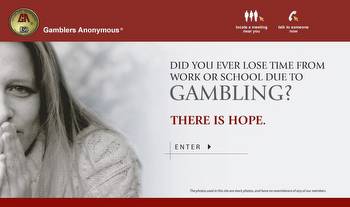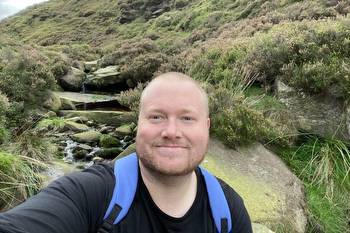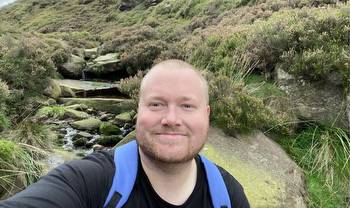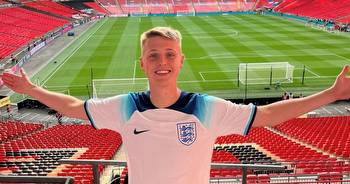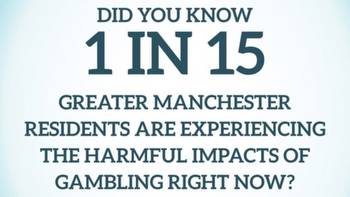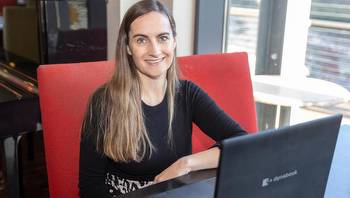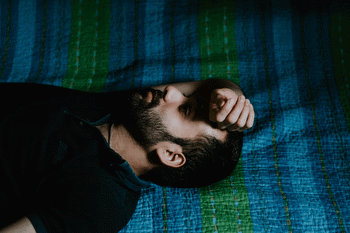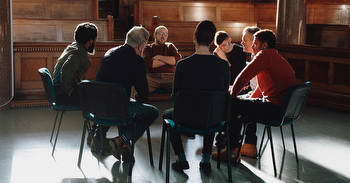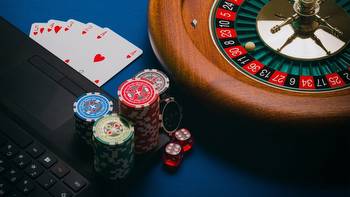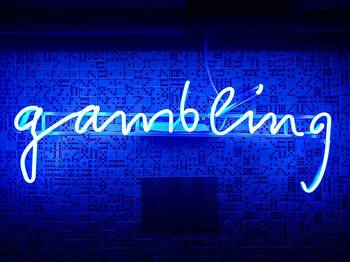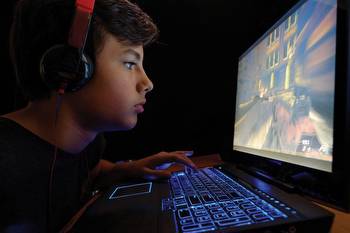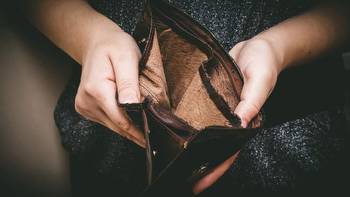How a former gambling addict recovered and can now help others
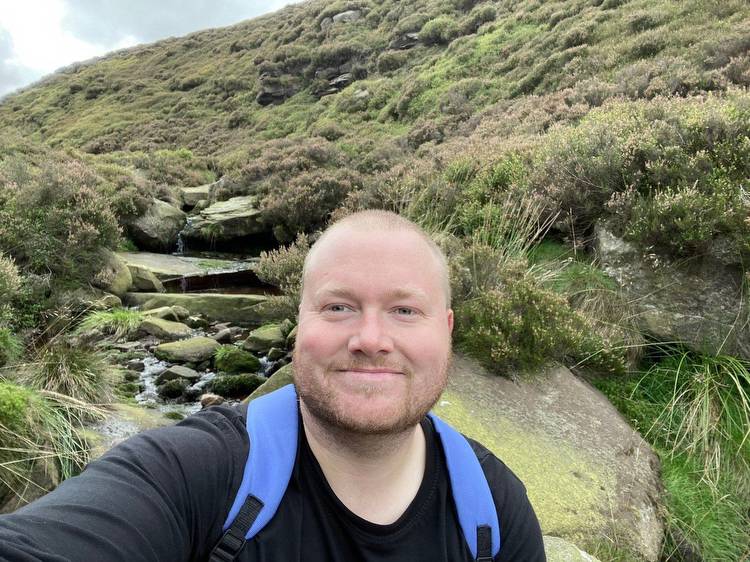
Will Halstead is endorsing a new campaign in Greater Manchester to highlight the negative impact of gambling.
More than £200,000 down after a 12 year addiction, Will Halstead felt suicidal, full of shame and alienated from society.
His compulsion had started off at the age of 18 with betting accumulators on football games, before roulette wheels and online slot machines hooked him in and spiralled his gambling out of control.
His relationship with his parents, who he lived with, broke down because of it, and he and was left feeling ‘in a bubble’ of gambling that no offers of help or support could penetrate. He would borrow money from his mum and blow it, repeating the cycle with bank loans – all on the ‘casino in his pocket’.
“The levels were going up to such a point that I needed to sort of put more money on, to get the same sort of buzz,” the former accountant, originally from Huddersfield, said. “And from there, it took up more of my time, and more and more money. I was soon going from paycheck to paycheck just gambling it away.
“I was sitting in my room waiting for (my pay) to come in and I was just gambling it away online within an hour of getting it. I could borrow such large amounts of money as well, and the bank wasn’t bothered – a recipe for disaster, really.
“My relationships fell apart and I wasn’t engaged in anything. All I was thinking about was betting. Eventually it started affecting my mental health and when I wasn’t gambling, I was probably having suicidal thoughts or suicidal ideation really.”
After repeated relapses and failing to muster any long-term change through cognitive behavioural therapy (CBT), the breaking point for Will, 33, was when he was at his ‘worst point financially’.
He said to himself: ‘are you really going to keep doing this for the rest of your life?’
He emailed the gambling controls service Gamstop and felt an instant sense of relief. It was the catalyst for a major turnaround. Two years and eight months on, having been supported through one-to-ones and group sessions, and he now works as a project coordinator with the group therapy project GaMHive, the charity who helped him.
Since stopping, Will has been on a ‘journey of self-discovery’ and has found a form of therapy through journaling. He’s even written a book, ‘A House in the Countryside: Living Gamble Free and Happy’.
The book documents his addiction journey, with insight into his mindset during that 12 year period. It’s an example of his new found sense of time – as before he felt ‘there was no time in the day for anything other than gambling’.
“The one thing about giving up gambling is the amount of time that you’ve suddenly got,” he said. “So people find it really hard to focus on other things. I always tell people to write down what they’re feeling. I think it is a sort of therapy you get from it.”
Will says just spending time doing things you like can be most beneficial. He describes idle hands as an ‘an absolute killer’ so focusing on what he enjoyed – and what gave him purpose – was key to breaking a cycle of relapsing.
‘I’m grateful to be where I am now’
Will has since healed the relationship with his mum and is trying to make amends for his ‘selfish’ twenties. He had been so secretive with his problem that his closest friends didn’t even know. When he confessed they were ‘shocked’ by the length and depth of his addiction.
“It sounds odd to say this, but it’s something we sometimes talk about on gambling groups, just being grateful for what you’ve been through because of how much it’s made you look at your life,” he said.
“My mum would look at me now and say she’s really proud of how far I have come since stopping gambling and with what I’m trying to do for other people.
“I’m so much more aware now what it takes to have relationships with people because before I was just so selfish. I was really rubbish, whereas now I’m the opposite, I’ll just try to be as selfless as possible.
“Without gambling, would I have had that awareness? I don’t know, maybe, but I’m definitely grateful to be where I am now.”
‘Taking on the industry’
Will says the shame he felt for his actions was ‘a big barrier to getting help’. But campaigns launched by the Greater Manchester Combined Authority (GMCA) like ‘Odds Are: They Win’ and the work GaMHive does can help in breaking the stigma around gambling addiction and mental health.
He believes that by ‘simply by teaching people about the addiction and also the tactics used by the gambling industry’, Greater Manchester can help effect change.
In his new role at GaMHive he wants to try and work with organisations like the GMCA to try and include lived experience in their campaigns.
He believes that the voice of people with lived experience of addiction is key to bringing people out of the gambling ‘bubble’, as it provides an example of what can be done.
If it can happen to Will, who as an accountant was a ‘man of numbers’, it can happen to anyone.
This is why he is endorsing the GMCA anti-gambling harms campaign, to inform people of industry practices that can have negative impacts on people’s health and wellbeing, finances, work, and relationships with friends and family.
In a UK-first, the campaign moves beyond the typical narrative of ‘responsible’ gambling and personal responsibility.
This campaign says that whatever the gambling product, whoever the gambling operator and whichever way you look at it, the ‘Odds Are: They Win’. It is being delivered during the 2022 FIFA World Cup. across a range of digital and outdoor channels, including billboards around the city-region and posters on the Metrolink network, to get people talking about the risks of gambling.
Will says he is encountering more women ‘finding escapism through gambling’ , as well as young men, and he wants the government to make gambling reform a priority.
More will be known when the Gambling Act white paper – the review into UK gambling reform – is published, however that was delayed in the wake of a Liz Truss cabinet reshuffle. Ministers are pushing for this to be published before Christmas but there is nothing confirmed so far.
What is happening to tackle gambling problems in Greater Manchester?
In the meantime, as part of the Greater Manchester gambling harm reduction programme, GMCA has awarded £300,000 of grant funding to support organisations and partnerships across the city-region to deliver initiatives that aim to prevent and reduce gambling related harm and tackle inequalities.
All boroughs of Greater Manchester benefit from the funding – from training of community volunteers in Oldham, Salford, Tameside and Manchester, to bespoke support for people who are currently unemployed in Wigan, to a focused intervention for victims and perpetrators of domestic abuse in Rochdale.
Mayor of Greater Manchester, Andy Burnham, said: “As an industry, the main aim of gambling operators is to maximise profits. These profits are the result of customer losses which, particularly during this cost of living crisis, risk having a seriously detrimental impact on people’s lives.
“This campaign in Greater Manchester is the first of its kind in shining a light on harmful industry tactics and supporting people to protect themselves against them. This is particularly important during the World Cup, and the overwhelming amount of gambling adverts that will be appearing on our television screens.
“We are doing everything we can in Greater Manchester to prevent and reduce gambling harms, and we need that to be matched by national action. The review of the Gambling Act is now well overdue, and the Government must take this opportunity to do more to protect our residents and people right across the country from the harmful practices of the gambling industry.”
As well as the organisations and charities already mentioned in this article, help for gambling addiction is available from GamFam or BeGambleAware. There is also support vailable from the NHS here while the Samaritans are there to help at any time.









